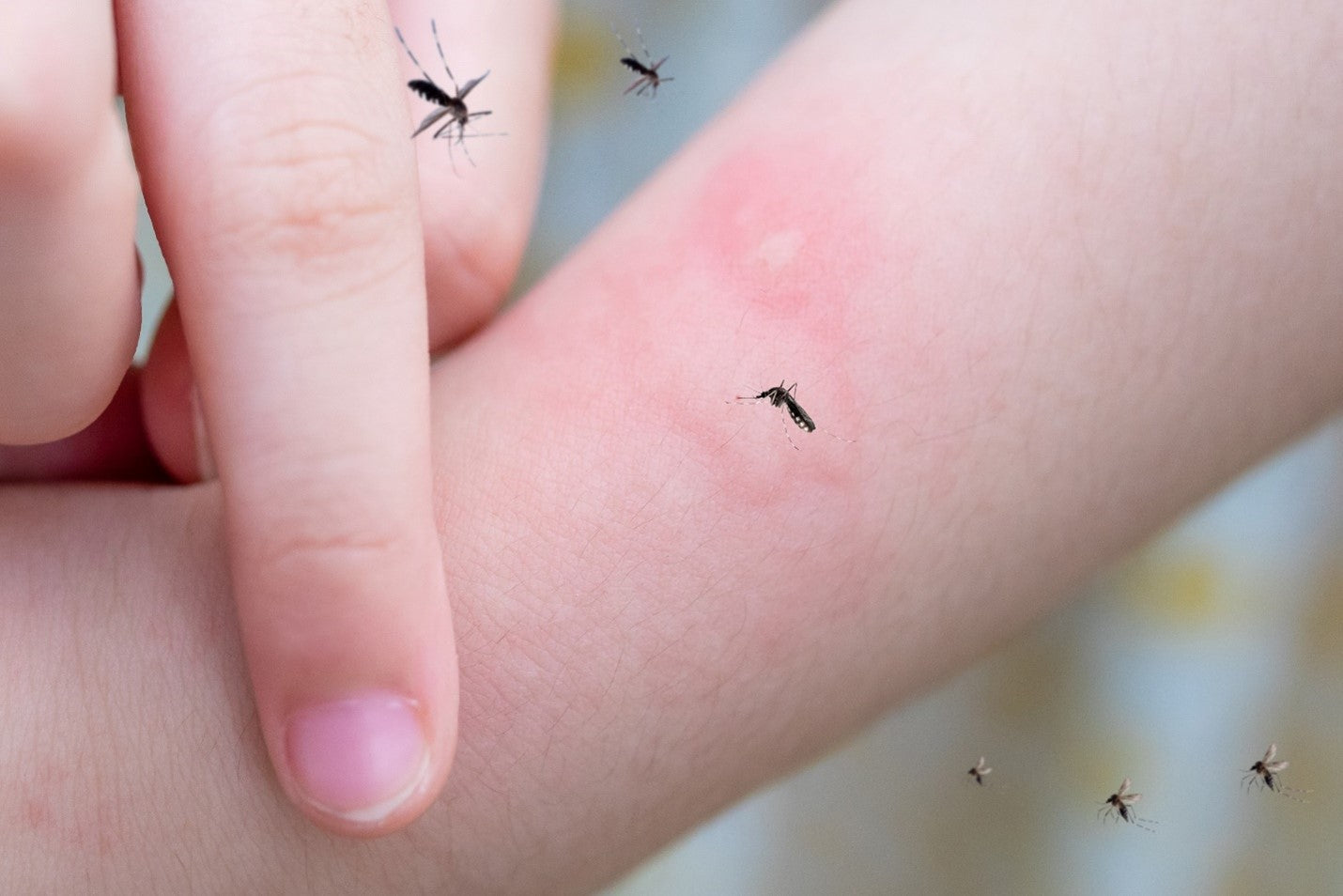
Why is There a Bruise Around My Bug Bite?
It's bad enough that bug bites make your skin itchy, swollen and red, but for some people, those welts can turn a dark color or even bruise. If that sounds like your experience, there's no need to worry. Insect bites accompanied with bruises are common, and they usually go away on their own in a few days. Why do some bug bites have bruises, and what type of insects cause them? MosquitoNix® can explain this phenomenon and how to prevent it from happening and how to help treat it when it happens to you.

What Causes Bug Bite Bruises?
Before you think about bug bites causing bruises, you may want to understand what exactly a bruise is. This kind of injury is a result of broken blood vessels under the skin. That blood can pool and create a discoloration that feels tender when you touch it. When a bruise occurs along with a bug bite, it is because that bite injured the skin or created enough inflammation that blood has collected below the skin's surface.

Not every bug bite causes enough injury to make a bruise, but some insect bites or stings pack quite a punch. Fleas, bed bugs and gnats don't typically cause bruising or discoloration, but these insect bites can:
Ticks: Because they burrow under the skin, tick bites can look red or purple at the site of the skin injury. You may not even notice when they bite you unless the area gets itchy or swollen.
Spiders: While not actually insects, spiders can bite and cause pain, itchiness, and yes, bruising. Two spiders to watch out for are the brown recluse and the black widow. Their venomous bites can quickly turn red to purple and require immediate medical attention.
Hornets and Wasps: If you've ever been stung by a wasp or hornet, you know how bad their stings feel. They tend to bruise; after all, that stinger pierces the skin and breaks small blood vessels underneath.
Mosquitoes: Not every mosquito bite leaves a mark; for most people, this insect bite creates a red, itchy welt that goes away after a few days. Some people, however, are allergic to mosquito saliva, which leads to more inflammation and discoloration.
Other Bite Versus Bruising Information
Just because some bugs don't typically leave a bruise doesn't mean you can't develop one from it. If you have an allergic reaction to any bug bite, from a mosquito to a gnat, you could see bruising. So if you do see a bruise, it's nothing to panic over if you don't have any other symptoms; it could just mean you have a mosquito allergy or allergic reaction to that specific bug.
Another way you could see bruising from non-typical bug bites is if you suffer from skeeter syndrome. This is a localized mosquito allergic reaction that is more severe. You may see blistering at the site of the bite, notice your skin start to peel or even have a fever. It is not contagious, but will definitely require antihistamines, corticosteroids and possibly medical attention.

What Can You Do To Help Bug Bite Bruises Heal?
When you first notice a bug bite, use an ice pack to numb any pain and control the swelling. Over-the-counter medications, from anti-itch creams to antihistamines, can relieve some of the itching and irritation from insect bites. If you notice more significant symptoms, like difficulty breathing, nausea, confusion or wheezing, seek medical attention right away. You could be experiencing a significant allergic reaction to your insect bite that is much more severe than a bruise.
How to Prevent Bug Bite Bruising
If you don't want to know if you have a mosquito allergy or if your body wants to couple a bug bite with bruising, you can take preventative measures against flying insects and other pesky pests. If you go outside in any wooded or shaded area where there could be or has been standing water, wear proper clothing. Light, loose items that cover your legs and arms will reduce the surface areas these bugs have to bite.
Especially when the temperature is 50 degrees Fahrenheit or above, wear bug spray with DEET in it to keep most of the bugs away from you and your pets. You can also avoid going outside when mosquitoes and bugs are most active, which is dusk and dawn when the sun is at its weakest. To stop bugs from getting in your home, make sure all doors and windows are secure, with no holes or cracks around them, and check the screens for tears or rips.
Of course, the best way to prevent any bug bite bruise is not to get bitten! MosquitoNix has custom pest control services to rid your property of mosquitoes and discourage other insects from hanging around your family and pets. Contact your local office or reach out online to learn more or schedule a consultation.
Leave a comment
Comments will be approved before showing up.
Also in News

Can Pets & Kids Have Fun In The Yard Right After A Mosquito Treatment? What Every Long Island Family Should Know

Kid Friendly Mosquito & Tick Defense on Long Island
Kid Friendly Mosquito & Tick Defense on Long Island


